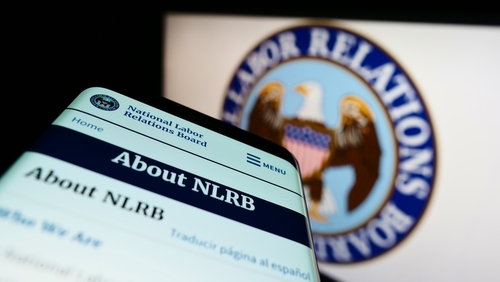How Could You Skip... ?
As an attorney and television aficionado, I was pleased to see <a href=”http://www.abajournal.com/magazine/the_25_greatest_legal_tv_shows/” title=”“The 25 Greatest Legal TV Shows”>”The 25 Greatest Legal TV Shows,” August. I was very disappointed, however, that the list did not include The Wire.
This HBO series, which centered around the relationship between crime and local government in Baltimore, explored a number of legal topics.
One of the show’s themes is how, in a major U.S. city, the staggering consequences of the failed war on drugs could go so unnoticed. The Wire’s point was regretfully and ironically reinforced by your article—it suggests a national journal of attorneys overlooked Baltimore’s story too.
Dawinder S. Sidhu
Potomac, Md.
I enjoyed the article immensely, but the judges missed one in my view: The D.A., NBC, 1971-72!
Filmed in the flat, matter-of-fact style of the Jack Webb series Dragnet, The D.A. starred Robert Conrad as Los Angeles County Deputy District Attorney Paul Ryan, who spent the first half of every episode gathering evidence against the accused party and the second half presenting it in court. Clearly an early model for many of the shows listed in your top 25.
No fluff or really kooky characters; it was a more realistic portrayal than others that occupied what little free time I had while in law school. Of course, maybe only obsessed law students found it appealing?
Anthony J. Battaglia
San Diego
You missed the very best legal TV show ever: The Trials of O’Brien, starring Peter Falk (before Columbo, and much better). Its life was brief (1965-66) despite excellent reviews and fantastic guests.
Here is a sample of the guest stars during one TV season: Jack Albertson, Alan Alda, David Carradine, Faye Dunaway, Charles Grodin, Buddy Hackett, Gene Hackman, Frank Langella, Cloris Leachman, Nehemiah Persoff, Martin Sheen, Elaine Stritch and Jessica Walter.
This show—with Falk as a rumpled but erudite trial lawyer troubled by a complex personal life—began just as I entered the University of Pennsylvania Law School. I watched it weekly with a big group of classmates as it confirmed in our minds that we had made the right choice in professions.
Beth-Ann F. Gentile
Washington, D.C.
Congratulations on putting out another superlative issue. Your writer failed to mention two wonderful series that, from a Canadian perspective, more accurately reflect our profession. The first was the British series Main Chance (produced in the late 1960s and early ’70s) and the second a Canadian series, This Is Wonderland (2004-06). When viewing either of these, one realizes that our profession is not just a “Hollywood story.” There are both good guys and bad guys, and they are real people.
Walter Kuplowsky
Toronto
CAREFUL ABOUT TABLE TRIALS
I just read professor Jim McElhaney’s “When the Judge Is the Jury,” August. As usual, it contains much useful wisdom, but his suggestion that bench trials be held around tables in conference rooms, rather than in courtrooms, is fraught with constitutional peril, both state and federal.
Numerous U.S. Supreme Court decisions make clear that the public’s right to observe judicial proceedings is grounded in the First Amendment. And my state’s constitution flatly requires: “All courts shall be open.” Any judge who removes a trial to a conference room, therefore, should be careful to give ample notice to the press and public, and to make provision for spectators who decide to exercise their constitutional right to observe what goes on.
Hugh Stevens
Raleigh, N.C.



